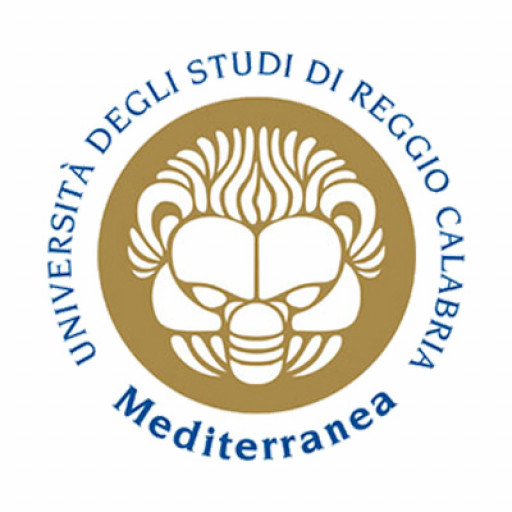Photos of university / #czuvpraze
The Bachelor's degree programme in Technology and Environmental Engineering at the Czech University of Life Sciences Prague offers students a comprehensive education designed to prepare them for a variety of technical and environmental challenges in today's rapidly changing world. The programme combines fundamental engineering principles with specialized knowledge in environmental systems, sustainable technologies, and management practices, equipping graduates with the skills necessary to develop innovative solutions that promote environmental protection and resource efficiency. Students will engage in coursework covering areas such as environmental technology, process engineering, renewable energy sources, waste management, water and soil protection, and pollution control. Through a balanced mix of theoretical instruction, practical laboratory work, and field projects, learners gain hands-on experience in designing and implementing environmental engineering processes. The programme emphasizes the importance of sustainable development and responsible management of natural resources, encouraging students to think critically about the environmental impacts of industrial and technological activities. Additionally, students have the opportunity to specialize further in areas such as renewable energy systems, environmental monitoring, or waste treatment technologies, allowing them to tailor their education to their career aspirations. The curriculum is reinforced with internships and project work in collaboration with industry partners, giving students real-world exposure and networking opportunities. Graduates of this programme will be well-equipped to pursue careers in environmental consulting, water management, renewable energy enterprises, manufacturing industries, or continue their studies in master’s programmes related to engineering, environmental science, or sustainable development. The Czech University of Life Sciences Prague’s commitment to high-quality education, innovation, and environmental sustainability makes this programme an excellent choice for students passionate about making a positive impact on society through engineering solutions that protect our planet for future generations.
The Technology and Environmental Engineering master's program at the Czech University of Life Sciences Prague offers students a comprehensive education focused on the sustainable management and technological development of environmental systems. This program aims to prepare graduates who are skilled in designing, analyzing, and implementing innovative solutions to complex environmental challenges. Students will gain in-depth knowledge of the principles of environmental protection, waste management, water treatment, air quality control, and renewable energy sources, integrating these with advanced engineering techniques and scientific research methodologies.
The curriculum is structured to combine theoretical foundations with practical applications, ensuring that students develop both critical thinking and hands-on skills. Core courses include environmental chemistry, ecology, environmental technology, sustainable development, and environmental legislation. Additionally, students will explore specialized topics such as pollution control technologies, environmental impact assessment, wastewater treatment processes, and the use of information technologies in environmental monitoring.
Throughout the program, students are encouraged to work on real-world projects in collaboration with industry partners, government agencies, and research institutions. This practical approach allows students to apply classroom knowledge to solve actual environmental issues, preparing them for careers in environmental consultancy, public administration, industrial waste management, and research and development. The program also emphasizes the importance of innovation and entrepreneurship in environmental engineering, fostering skills necessary for developing new technologies and sustainable solutions.
Graduates of the Technology and Environmental Engineering master's program will be equipped with the necessary expertise to contribute to the preservation and improvement of our environment. They will be capable of leading environmental projects, assessing the ecological impact of technological innovations, and promoting sustainable practices in various sectors. The program also serves as a solid foundation for those who wish to pursue doctoral studies or participate in international research collaborations. With a strong focus on interdisciplinary learning and practical experience, the program prepares students to become responsible engineers and environmental leaders committed to creating a more sustainable future.
The program in Technology and Environmental Engineering at the Czech University of Life Sciences Prague requires applicants to have completed secondary education meeting the university's admission criteria. Prospective students must submit a completed application form, official academic transcripts, and proof of language proficiency in English or Czech, depending on the language of instruction. For international applicants, TOEFL or IELTS certificates are often required to demonstrate language skills, with minimum scores set by the university. The program may also require submission of a motivation letter outlining the applicant's interest in the field and career goals, as well as a curriculum vitae demonstrating relevant academic or work experience. In some cases, an interview or entrance test could be part of the selection process to assess applicants' aptitude for technical and environmental sciences. Academic prerequisites typically include a solid background in mathematics, physics, and chemistry, which are fundamental for understanding engineering principles and environmental technologies. The program curriculum is designed to provide comprehensive knowledge and practical skills in areas such as environmental protection, sustainable development, renewable energy sources, water management, waste treatment, and environmental assessment. Students are expected to participate in laboratory work, field studies, and project-based learning to develop problem-solving abilities and technical competencies. The program encourages interdisciplinary approaches and often involves collaboration with industry partners, research institutions, and environmental agencies. Graduates of the program are qualified to pursue careers in environmental consulting firms, governmental agencies, renewable energy companies, and research organizations. They can also continue their education through master's or doctoral studies in related fields. Overall, the admission requirements aim to select motivated and capable students who are committed to addressing environmental challenges through technological innovation.
Want to improve your English level for admission?
Prepare for the program requirements with English Online by the British Council.
- ✔️ Flexible study schedule
- ✔️ Experienced teachers
- ✔️ Certificate upon completion
📘 Recommended for students with an IELTS level of 6.0 or below.
Financing for the Technology and Environmental Engineering program at the Czech University of Life Sciences Prague is provided through a variety of sources to ensure that students have access to quality education and research opportunities. Tuition fees are primarily funded by students' own resources, although reductions and scholarships are available for eligible candidates. The university offers a range of scholarships based on academic performance, social need, or international cooperation agreements, which can significantly offset the total cost of studies. International students often have access to additional financial support programs designed to promote diversity and inclusion within the student body.
The Czech University of Life Sciences Prague also collaborates with various governmental and European Union funding programs that support research projects, internships, and knowledge transfer activities related to environmental engineering and technological development. These projects often include components that fund student research, practical training, and international mobility, providing additional financial benefits to students engaged in such activities.
Moreover, students may seek financial aid through student loans available from Czech banking institutions, which are often structured to support higher education financing including tuition fees and living expenses. The university’s career center plays a vital role in assisting students with part-time job opportunities and internships that can help cover personal expenses while gaining practical experience in their field of study.
In recent years, the university has also expanded its partnership with industry and professional organizations, facilitating sponsorships and grants for outstanding students or those undertaking specialized research projects. Additionally, some programs may offer fee waivers or discounts for early registration or for students participating in exchange programs.
Overall, the financing options for the Technology and Environmental Engineering program are diverse, aiming to make higher education accessible to motivated students from various economic backgrounds. The university encourages applicants to explore scholarship opportunities early during their application process and to utilize the resources provided by the university’s financial aid office to plan and manage their educational investments effectively.
Technology and Environmental Engineering at the Czech University of Life Sciences Prague combines principles of engineering, environmental science, and technology to prepare students for addressing complex challenges related to sustainable development, environmental protection, and technological innovation. The program's curriculum includes a comprehensive study of environmental systems, water management, waste treatment, renewable energy sources, pollution control, and eco-friendly technological processes. Students gain theoretical knowledge in disciplines such as chemistry, biology, physics, and engineering, alongside practical skills through laboratory work, field trips, and projects. The program emphasizes the importance of sustainable development and environmental stewardship, preparing graduates for careers in environmental consultancy, water management companies, governmental agencies, private industry, and research institutions. Students also acquire competencies in project management, environmental legislation, risk assessment, and the use of modern technological tools for environmental analysis and monitoring. The program typically offers a combination of lectures, seminars, laboratory exercises, and internships to ensure a well-rounded education. Graduates are equipped to design, implement, and manage environmentally sustainable technological solutions, contributing to the safe handling of natural resources and the mitigation of environmental impacts. The program aims to produce professionals capable of working at the intersection of engineering and environmental protection, supporting the transition to greener technologies and sustainable practices across various sectors. The university collaborates with industry partners and institutions, providing students with opportunities for internships, joint research projects, and practical training that enhance their employability and professional development in fields related to environmental and technological engineering.











